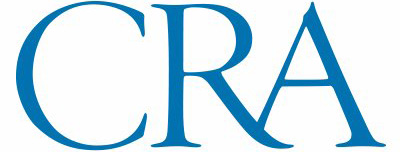About the claim
A coalition of more than 30 European media organisations from 17 countries has filed a legal action against Google, seeking damages of more than EUR 2 billion. On this page, we will share any public updates on the case.
The claim pertains to Google’s anticompetitive behaviour in “ad tech”, the various technologies behind online advertising. The lawsuit was filed in the District Court of Amsterdam, the Netherlands.
Ad tech is the technology powering the online ads billions of consumers see in their everyday lives when surfing the web and using their smartphones. Selling digital advertising has become a key source of revenue of online content. Digital advertising has experienced spectacular growth, exceeding $ 490 billion in 2021. Selling digital advertising has become a key source of revenue for publishers of online content.
Google is the largest and most important ad tech vendor at each step of the value chain, with market shares as high as 90-100%. Following a complaint by news publishers in 2019, the French Competition Authority established that Google infringed Article 102 of the Treaty on the Functioning of European Union (“TFEU”) – which prohibits undertakings holding a dominant position from abusing such position – by implementing practices aimed at ensuring that (i) Google’s ad server favours Google’s AdX ad exchange, and conversely, (ii) Google’s AdX ad exchange favours its ad server.
According to the decision, Google’s conduct inflicted considerable harm on website owners, in that it depressed their revenue, among others by (i) depriving them of the ability to benefit from undistorted competition between ad exchanges, which could have exerted pressure on Google to lower its very high AdX fees (around 20%), and by (ii) diverting impressions from rival ad exchanges charging a lower revenue share.
In particular, the French authority noted that Google granted preferential treatment to its proprietary technologies offered under the Google Ad Manager brand, both with regard to the operation of its publisher ad server DFP (which allows publishers of sites and applications to sell their advertising space), and its supply-side platform AdX (which organises the auction process allowing publishers to sell their “impressions” or advertising inventories to advertisers) to the detriment of its competitors and publishers.
News media were negatively affected at a time when their economic model was already weakened by the decline in sales of print subscriptions and the decline in associated advertising revenue.
This kind of conduct by a company in a dominant position is manifestly contrary to competition law. Anyone who suffers damages from such illegal behaviour can claim compensation in court.
Q&A
What is ad tech?
Ad tech is the technology powering the online ads billions of consumers see in their everyday lives when surfing the web and using their smartphones. Digital advertising has experienced spectacular growth, exceeding $ 490 billion in 2021. Selling digital advertising has become a key source of revenue for publishers of online content.
What is being done against Google’s behaviour globally?
This is not the only case addressing Google’s anticompetitive conduct in ad tech. The following action has been taken or is currently ongoing:
- The French competition authority issued a decision in June 2021, issuing a penalty of EUR 220 million. It found that Google abused its dominant position in the advertising server market by granting preferential treatment to its own proprietary technologies to the disadvantage of its smaller competitors. Google agreed not to contest the French competition authority’s findings.
- The UK competition authority (CMA) identified significant issues in the ad tech sector in its July 2020 Final Report on Online advertising. It launched an antitrust investigation into Google’s conduct in ad tech in May 2022 which is currently ongoing. Separately, a collective action was brought against Google on behalf of all UK-based publishers, on which Geradin Partners is instructed alongside Humphries Kerstetter and Hausfeld.
- The European Commission issued a statement of objections against Google in June 2023, finding provisionally that Google abused its dominant position in breach of EU competition law. Google filed its defence against these provisional findings in December 2023.
- In the U.S., a group of State Attorneys General led by the State of Texas have brought a lawsuit against Google for its ad tech practices in December 2020. In January 2023, the U.S. Department of Justice brought its own civil lawsuit against Google alongside the case brought by the State AGs. Both cases are ongoing.
Can website owners still join the claim?
The case was filed in February 2024, and it is no longer possible to join. However, the teams involved are looking at whether there is appetite to run a second case. Click here to find out more.
About us

Geradin Partners has unrivalled expertise on ad tech. Geradin Partners acted for News Corp as the lead complainant in the French Competition Authority investigation that led to the adoption of the French Competition Authority decision. Geradin Partners also represented the European Publishers Council in the CMA’s investigation into Google’s Privacy Sandbox browser changes, and in filing a formal complaint with the European Commission on Google’s ad tech practices in February 2022. Geradin Partners have authored extensively on ad tech and their papers have been cited by the CMA and the Australian Competition & Consumer Commission.
The Geradin Partners team consists of Damien Geradin, Stijn Huijts, Ruben Elkerbout, David Gallagher, Mattijs Baneke and a team of associates across the firm’s Amsterdam, Brussels and London offices.

Charles River Associates (CRA) is a leading provider of antitrust economics advice across the globe. CRA is recognised for rigorous economic and empirical analyses accessible to specialists and non-specialists, before agencies and courts. CRA has extensive experience in developing antitrust theories of harm and estimating damages in the technology sector and advised complainants and agencies in multiple matters involving Google. The team is led by Oliver Latham and Mikaël Hervé.

Stek is an independent Dutch business law firm based in Amsterdam. Stek helps its clients achieve their legal goals in the areas of Corporate, Finance, Dispute Resolution, and Competition & Regulated Markets. Stek is recognized by the market for having an excellent Competition Litigation team; Stek is known for dealing with complex cases and robust knowledge of EU competition law, superb litigation skills and focus on providing no-nonsense practical and clear advice and communication on smart and effective litigation strategies. Stek provides approachable excellence: personalized, tailor-made legal services to its clients. According to Chambers Europe, “the team is sharp, pragmatic and down to earth”, clients admire the lawyers’ “solid, no-nonsense and quick advice” and appreciate the lawyers’ “think ahead, challenge us on the way we should substantiate our claims and make sure that our submissions are structured and convincing.” The Stek team consists of Jan Bart van de Hel, Simon Boersen and a team of associates in Stek’s Amsterdam office.

Harbour is a Chambers band 1 rated litigation funder that was founded in 2007. It was a founding member of the Association of Litigation Funders of England and Wales and was involved in drafting its Code of Conduct. The current Chair of the Association is a member of the Harbour team. Harbour was also a founding member of the International Legal Finance Association. Harbour is funding a £600m class action at the UK Competition Appeal Tribunal on behalf of 2.3 million consumers (many old and vulnerable) who BT are alleged to have overcharged for their landlines (Justin le Patourel v BT). It is also funding a competition damages action for several publicly listed UK retailers who suffered harm as a result of the Trucks cartel. Other notable claims it has successfully funded include a claim on behalf of 15,500 Indonesian seaweed farmers who suffered harm as a result of an oil spill in the Timor sea in 2009. Further details of Harbour cases can be found here: Case studies – Harbour Litigation Funding